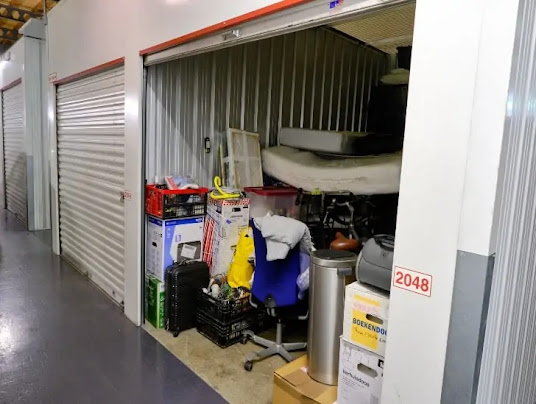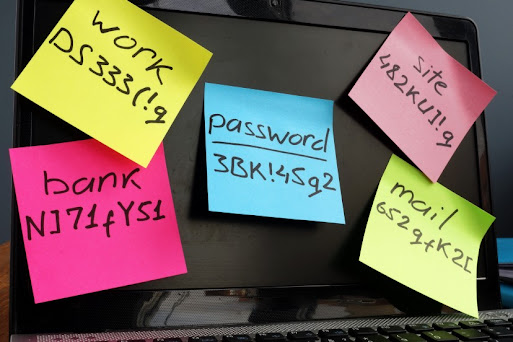October 2022 Newsletter
Happy Halloween to you!
Welcome to Milky Way Afternoon Brew, my monthly newsletter to my beloved clients.
This month is the time of the year when the kids are eager to go trick-or-treating for candies, and some adults are also eager to get their homes spookily decorated. The point of this holiday is to remember and give thanks to those who died.
In our modern day, we are less likely to be worried about ghosts rising from graves on Halloween. We dress up like characters we like; we may have Halloween parties; we can sneakily enjoy the candies the kids got from trick-or-treating. All of these are just a way to celebrate life.
Do you want to get everything in your life organized before you leave so that your beloved ones have time to grieve?
You may think I will talk about estate planning (as I usually remind my friends and my clients to do so). But with some people, talking about estate planning is similar to talking about death. They feel it is a heavy task.
However, I found another task that may make you less procrastinate: Organize your Personal stuff.
I just sifted through my winter clothing stuff this morning. At that time, I thought to myself, "What would happen to my stuff if I left?" What if I can list, label, and assign everything, especially documents so that my beloved ones can quickly sort out everything instead of not knowing what to do with my stuff.
These are ideas I got from a book I just read In Case You Get Hit by a Bus- How to Organize Your Life Now for When You're Not Around Later by Abby Schneiderman and Adam Seifer with Gene Newman.
I thought about my stuff because I have a lot of my hobbies. However, the founders of Everplans suggested you should organize your passwords first and then share them with your family. Your priority may be different but consider the list of things you need to organize so that you won't miss a thing.
The first thing to do is to organize your passwords. Imagine that your family can't access your phone or online accounts to pay or end some services. What are the 5 most important passwords you have to organize first? You can have a password manager remember all your passwords to your online accounts, of course with a monthly or annual fee. You also have offline codes that are not tied to an online account like ATM codes, lock combinations, home security system, or to your safe box.
 |
| Source: amazon |
I experienced this when my husband was on his business trip. He set up passwords to limit my kids' screen time. The kids were doing homework on the laptop and it froze due to the time limit. They cried but I couldn't extend the time for them because I didn't know the password. It wasn't solved until my husband finished his job and logged in to his computer and set up more time for them.
The second thing is to find and organize your IDs. The authors challenge you to find all documents in 10 minutes:
- Birth certificate
- Citizenship documentation/ green card/ visa
- Driver's license/ nondriver's ID
- Military ID
- Passport
- Social Security card
- Work ID
- High school diploma
- College/ university diplomas (bachelor's, master's, doctorate, etc.)
- Religious confirmation certificate
- Professional or trade certifications or designations
- Adoption papers
- Marriage certificate
- Divorce decree
- Military discharge papers
Although some papers are ceremonial, others provide benefits to your family if they need them. Did you know you can't get a death certificate without a Social Security number?
The third one to organize is your money because it is in different forms scattered all over the place. They can be liquid like money in your bank accounts, hidden somewhere in your home, others can be assets including your investment accounts, retirement accounts, real estate, possessions, and life insurance policies.
Organizing all accounts will give you a clear picture of your financial situation. The list of these accounts allows your family to apply for and claim benefits as well as makes the probate process go more smoothly. The right people (will executive or POA) can close bank accounts and transfer assets to beneficiaries. The most important thing is none of your assets will go "unclaimed" because no one knows about them, which happens. All the time. $41 billion are in the hands of the states because their beneficiaries are completely unaware of them. But even when the beneficiaries know about them, the required tracking documents may prevent them from getting the money back.
So if possible, you should track down all your assets as soon as possible with these questions in mind:
- Where is the money? The bank name for your bank account money. The deed to a house. Title for a vehicle. Contracts (for the sale of a property). If your account is only online, the login information should be included with your password.
- Sharing the account or PIN number? You can share it with your POA if you feel it is safe to do that.
- A personal contact? If you have an advisor or broker for your accounts, you should list it on your document. If it's just the name of a bank or a site, list it also.
- Any relevant paperwork? Deed to a house, the title for a vehicle, etc.
- What is it worth? If this is a tangible asset like an expensive piece of jewelry or a rare coin collection, you should tell your trusted family member its location, and its value so that it won't be ended up in a garage sale or trash bin.
You may be incapacitated but your family member can help you claim some living benefits like pension, Social security, Disability, Unemployment, Annuity or Longevity Insurance, Alimony or Child support, and Reverse Mortgage. You should include details about it, how and where you get paid, a contact, and online details.
Fourth is your home.
I witnessed that my hairdresser had to take care of everything in the house because her husband was lying unconscious in hospital for half a year. She admitted that she didn't know who to call when a pipe burst, which her husband fixed when he was still healthy.
A woman may rely on her husband to take care of the house, but when he isn't there, she has to do it by herself to keep the house still running. So a manual for the whole home with emergency contact numbers will be helpful for your family. It is a long list you or your loved ones will take care of if you don't want your home to look like a junkyard.
- General: Electricity, Phone, Internet, Furnishing and decors, Security system, Home automation, Smoke and carbon monoxide detectors, Fireplace.
- Basement: HVAC, Water, Laundry machines, Mold, Floods, Musty Smells, Infestations, Foundation problems, Storm Drain or Sewer line, Dehumidifier.
- Storage: If you store your stuff in a rented storage unit, you should also share your notes about its name and location, the unit number, the key or lock combination, and the monthly or annual fee so that your family can pay for it to avoid foreclosure.

Fifth is your vehicles. You may have a truck, motorcycle, RV, snowmobile, tractor, boat, etc. Treat them like you did your home. You may want to add as many details as possible like license plate number, registration number, and state of registration (and when it's due for renewal) as well as the VIN number.
Where do you keep them? It's more complicated if you live in a city and have your boat moored in a harbor full of boats.
Do they have a keypad code with your passwords?
Do they require extra care?
Do you have any emotional connection with it that your family may want to keep after you've gone?
The last one may be the most important: Contacts. In this digital age, it seems that all our contacts are on our phones. So among thousands of contacts, which are the ones your family can reach to deal with your situation? The authors suggest 5 types of emergency situations when a lesser-known contact is needed:
- MEDICAL: A primary care doctor, or another specialist with your medical situation.
- HOME: It may overlap with the above information if you already organize a manual about your home. If you haven't done yet, at least you may have the contact information of a handyman who usually fixes things around your home in case a pipe bursts. Or if you rent a house, you may want to list the landlord or management company.
- FINANCIAL: If you already have an advisor, list the contact details in case your family deal with any of your personal financial problems. They can be your financial advisor, an accountant, a retirement planner, an insurance agent, an investment manager, or a tax preparer.
- LEGAL: if your family needs a copy of your will or other legal documents. They can be your estate planning attorney, family/divorce attorney, personal injury
- WORK: the person at your job who your family can inform about your situation and help them collect your benefits.
- Your Personal VIPs: Friends, coworkers, neighbors, religious organizations, charities, and volunteer work
These are the personal things you can organize and document by yourself. If you feel reluctant to do it, how about your beloved ones? It may take them a whole year to depart all of your things with your organized file.
You also need to organize information for your kids, your aging parents, and maybe your pets if you are taking care of them.
You will need to make your will or trust, assign power of attorney, and guardian for your kids and more things to be done but these are the first things you want to do if you see estate planning as a heavy task.
These are just the first level of your life to organize, but I find them even more helpful for us when we are alive. I may be away from home for a few days, and these files are helpful for anyone who's helping out taking care of my kids or my home.
Pick one task you feel is easy to do today!
Happy Halloween again!
Ha Le, CRPC™
Milky Way Retirement
P/s: Please subscribe to receive the newsletter every month here.













Comments
Post a Comment